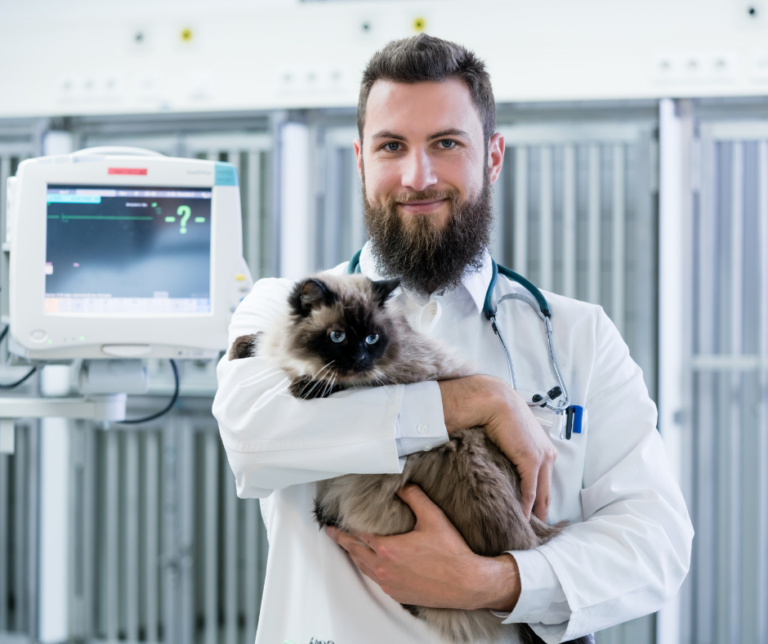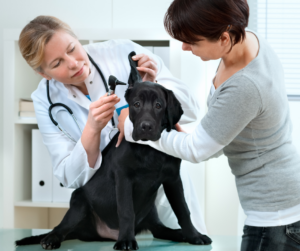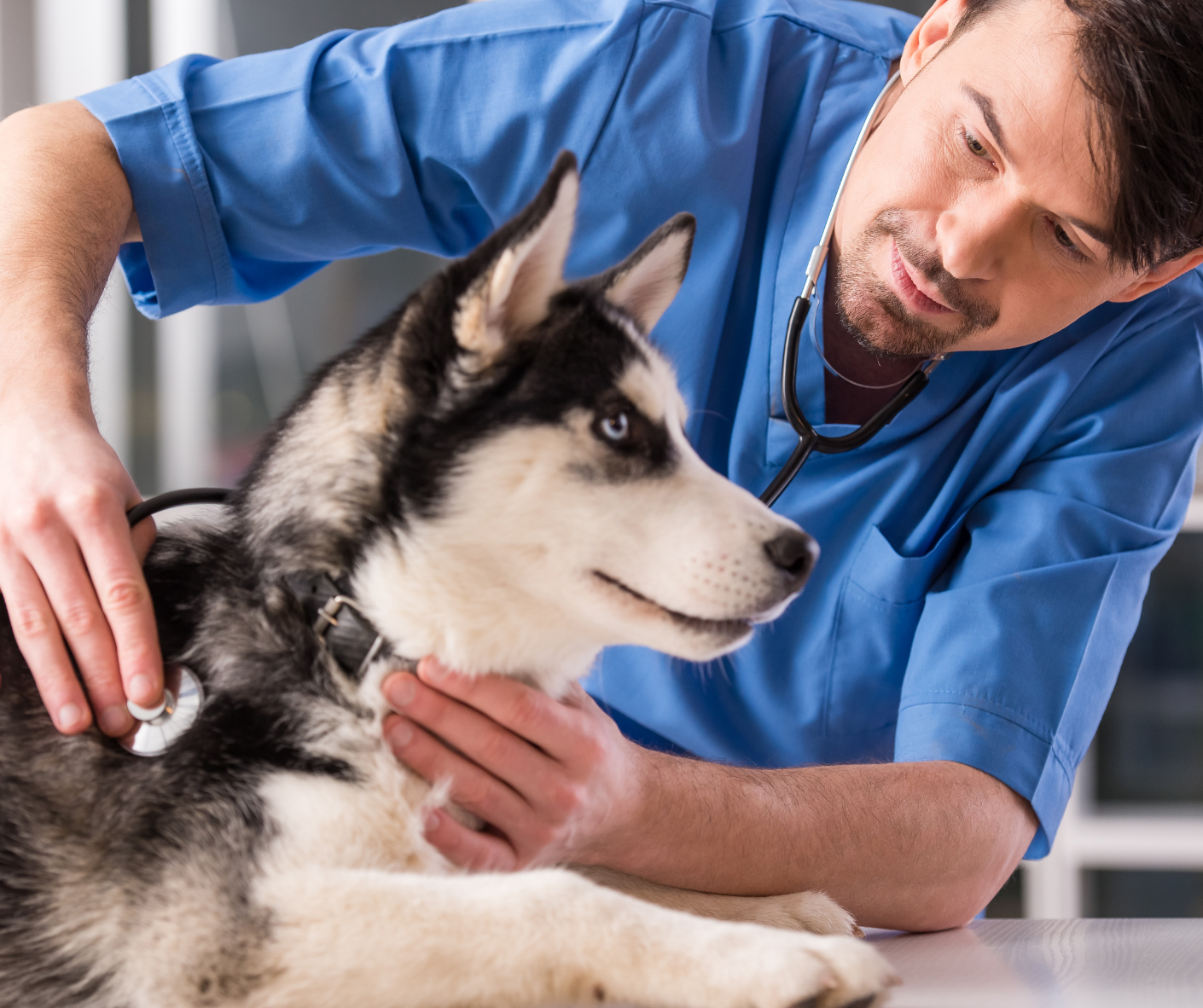Veterinary clinics, pet hospitals, pet shelters, and other medical facilities that cater to animals’ health needs are often described as 24-hour businesses because emergencies can happen at any time. So, in reality, veterinary medical professionals are on call beyond normal business hours. For this and other reasons, veterinary businesses are excellent beneficiaries of answer services.
For the vast majority of people, their pets are loved and cherished family members. In the event of a medical emergency, it’s essential that they have access to veterinary professionals. Just as in any medical practice, the last thing a person in a desperate situation wants to hear is an answering machine.
What Challenges Do Veterinary Receptionists Face?
Veterinary receptionists tend to perform many duties in this role. This person is the direct contact for patients coming into the office each day. They are responsible for greeting and checking in clients, while attending to their immediate needs. On top of managing the waiting room, they are also expected to take payments, schedule follow-up appointments, coordinate with insurance companies, and ensure patient records are updated and handled correctly.
Adding the responsibility of monitoring phone lines can break the focus needed to execute these important tasks properly. Patient calls can come in at any moment during the day, easily preventing a receptionist from staying present and providing the best care to customers right in front of them. This is where veterinary answering services from Anserve can help!
How Veterinary Services Can Benefit from a Veterinary Answering Service?

- Relieves Admin Burden: Virtual receptionist services are part of veterinary answering services from Anserve. A virtual receptionist service relieves administrative duties from your in-person staff, allowing them to care for patients more attentively. This partnership can also help maximize the space in your office. Leaving the phone services to a remote staff means less space dedicated to these administrative tasks and more capacity for your staff to perform their specialized services on site.
- 24/7 Customer Support: Oftentimes, pet health issues come up outside of normal business hours. Fortunately, Anserve operates 24/7, so every call to your practice is answered and addressed accordingly. Investing in a virtual receptionist as part of Anserve’s veterinary answering services maintains a constant live agent presence while decreasing payroll costs.
- Scheduling Appointments: Veterinary answering services offer a 24/7 point of contact for your clients and an up-to-date source of information for your doctors and staff. For a primary care vet, Anserve can assist with scheduling appointments, reminding clients of appointments, and delivering messages to the appropriate doctor. Anserve’s veterinary answering service can also help emergency animal hospitals by calmly advising pet owners and alerting veterinary technicians of incoming emergencies.
- Satisfied Customers: With Anserve’s virtual receptionist services, you can tailor scripts based on call type and time of day. You have the ability to see incoming messages in real-time online, or have messages forwarded instantly to email, text, secure message, or fax. This streamlined form of communication provides for happier employees and satisfied customers.
- Collaborative Relationship: their works It’s important to foster a highly collaborative relationship between the answering service and the veterinary facility to effectively deal with any number of specific or general circumstances. The veterinary service provides the answering service with information and data allowing them to create highly specific, relevant scripts. These scripts can be designed to reflect policies and protocols for identifying many of the most common pet emergencies.Veterinary facilities often see a recurring set of emergencies. By creating scripts and policies and providing access to question/answer/protocol sheets, live agents can ask a series of highly specific questions. Agents can use callers’ answers to determine which veterinary staff members to contact.
- Triaging Emergency Calls: If, for instance, the emergency is clearly defined and immediate, the call can be categorized as an call, directed to the on-call medical veterinary professional. If the call clearly fits non-immediate criteria as determined by the veterinary service, it may facilitate contact with another staff member.
- Client Retention: Answering service employees have been trained in advanced communication skills and perceptions to know how to get the caller to a calmer state so that they can get to the heart of the matter. They have sophisticated support technology and veterinary service-provided data to give callers the impression that they are speaking to a staff member.Both of these aspects go a long way in setting ethical standards and levels of care that veterinary businesses rely on to set them apart from other services. This level of service can be a big factor in client retention and maintaining a healthy bottom line. An answering service for veterinary care ensures that veterinary clinics or hospitals can always respond on the first ring with a knowledgeable and live virtual receptionist. This further ensures long-term client retention.
- Multilingual Services: Anserve offers multilingual veterinary answering services, providing a clear line of communication between vets and a wider, more diverse client base. Depending on the services needed, and whether it is business hours versus after hours, the answering service will answer and handle calls however you see fit.
- Patient Privacy: In addition, leading answer services are not only skilled in working with all types of medical practices, but have policies in place for patient privacy and security. Privacy may not be an issue in terms of being directly detrimental to the owner. But, that being said, the sophisticated technology of the answering service allows long-term storage of all calls and messages that can provide additional information to the veterinary service.
How Do Answering Services Answer the Phone For a Vet Clinic?
Veterinary answering services follow your lead when it comes to answering scripts. You dictate the information passed on to customers, such as company hours, services offered, and scheduling. Whether a vet clinic or animal hospital, remote call staff have experience in fielding a wide variety of animal care calls and can familiarize themselves with your specific services and scheduling practices.
Why is Communication Important In A Veterinary Practice?

It can be just as distressing for a caller to speak to someone who lacks a compassionate approach to dealing with their plight or the skills to deal with a caller who may be in an agitated, panicked, or other extreme emotional states. In this regard, the most elite and sophisticated answer services prove themselves to be far more than just live message takers.
Communication in a veterinary practice is crucial because poor communication can result in inadequate care. Veterinary answering services contribute to the quality of communication by asking the right questions and taking down detailed patient notes before they are scheduled to come into the office.
If your practice has on-call procedures, the call center staff can triage calls and get in contact with the on-call vet in the event that an emergency occurs after hours. This reliable line of communication puts your staff ahead of the game, providing them with the information they need to deliver appropriate care in a timely manner.
Why Use Anserve’s Veterinary Answering Service?
With the help of a veterinary answering service, your whole staff will benefit, as well as your practice’s clients. Anserve has over fifty years of fielding phone calls and recognizes the importance of maintaining positive customer relationships. Our staff is well trained and flexible with your script and scheduling preferences. Relieving your in-person staff of this responsibility will free them up to tend to patients more attentively. With a 24/7 answering service like Anserve, you will also be offering comprehensive answering and scheduling services, while reducing your payroll. Contact Anserve today to see how a veterinary answering service can help your practice.

Director of Business Development
With over 25 years of experience, Peter oversees the marketing, sales and account management for Anserve. He is an expert in customer service and strategic business growth, leveraging his knowledge to help businesses optimize revenue using efficient procedures.


